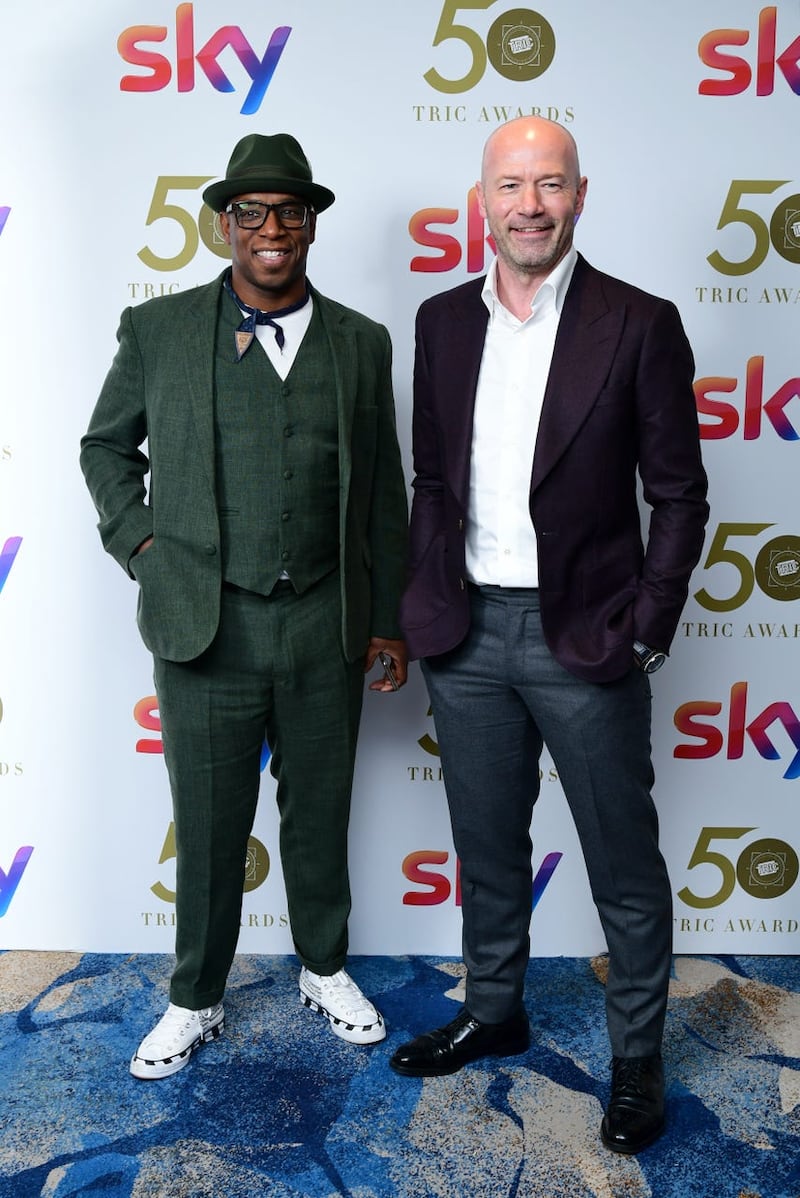Gary Lineker has said he regrets the fallout between himself and the BBC after a row over impartiality, and said the support he received from colleagues left him in tears.
The Match Of The Day host, 63, was taken off air by the corporation after comparing the language used to launch a Government asylum seeker policy to 1930s Germany.
Benching Lineker sparked a backlash and resulted in a number of his fellow pundits, including Ian Wright and Alan Shearer, boycotting the football highlights programme.
Lineker later returned to the show, but new BBC social media rules have since banned flagship presenters from making attacks on political parties.
Speaking at the Hay Festival in Powys, the former England footballer said he was overwhelmed by the support he received from the likes of Shearer and Wright.
“I think it is a great shame, what happened, because it pretty much pitched me against the BBC. I love the BBC,” Lineker said.
“The Daily Mail has got a raison d’etre and they wanted a story on the BBC.
“I think the BBC needs to not worry as much about the Daily Mail and worry about what the people who love the BBC care about.
“I think this all came about because of the front page the Daily Mail put out after I replied to someone, which I thought nothing about.”
He said he switched off his phone after making the comment and went to bed, but woke the next morning to hundreds of messages about the front page story.
“It was front page of the Daily Mail comparing to Nazis… it was completely out of context to what I said. It was a distortion,” Lineker said.
“It started to spiral a little bit and I remember having a group chat with Alan Shearer and Ian Wright and I said I had this feeling they are going to take me off Match of The Day this week.
“Wrighty immediately said there was no way he was going to do the show.”
After the BBC announced the decision, Wright and Shearer pulled out of show, as did several commentators and reporters.
“It was extraordinary… I was in the back of a taxi when it happened, when Alan Shearer pulled out and I started crying,” said Lineker, who has hosted the programme for 25 years.

“The one thing I do regret was the fact it was a fallout between me and the BBC, it should have been a fallout between the BBC and the Daily Mail.”
Introducing Lineker, historian David Olusoga said he would ask the former Leicester, Everton, Tottenham and Barcelona striker about a range of non-footballing issues like his broadcasting career and political views.
“Usually told to stick to football,” Lineker joked in reply.
He also defended the right of current sports stars like Marcus Rashford and Raheem Sterling to speak out on issues important to them, such as child poverty and racism.
“It is only a line of attack if they don’t agree with you,” Lineker said.
“They are perfectly happy for free speech and free speech for sports people or free speech for musicians as long as they agree.
“The minute they disagree with what you say they say stay in your lane.
“I would defend anyone’s right to have an opinion. You can (have an opinion) if you agree with them.
“The minute someone disagrees with your side of things – which they are perfectly entitled to, but they are not entitled to say you are not allowed – you can disagree with it and I think that’s important, and have a debate, but to just shut someone down…
“Why can’t a footballer have a view but a plumber or an electrician can? And therefore, why should a politician ever have a view on football?”
Laughing, Lineker said: “I did see Rishi Sunak kicking it around the other day… maybe he shouldn’t.”
Lineker also defended his comments on social media, saying he was not trying to influence people but “look himself in the mirror”.
But he told the audience he “detested” the so-called culture wars.
“I don’t understand it,” he said.
“What I dislike is the driving of people to dislike each other. We should always be as one and I just think we need a bit of kindness back, rather than attacking people.
“I think it is really sad because I don’t think we are that kind of people. You can have disagreements, but it doesn’t mean you hate them.
“I think that driving a wedge between people is unacceptable and disappointing.”






